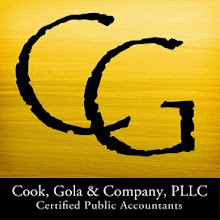Time. It all comes down to the amount of time a firm and its employees must spend gathering support and documentation. An increase in audit hours leads to an increase in overall audit costs due to the per hour rate that most firms institute. Why the increased support and documentation? Two words: new standards.
These new accounting and auditing standards are often difficult to interpret and can be even harder to apply. Some of the more wide-known changes include:
• Greater responsibility related to the detection of material fraud
• Gaining a better understanding of the design and operation of a client’s internal controls
• Obtaining specialized knowledge regarding fair value measurements
• Determining the best answer when presented with conflicting guidance in professional literature
What can firms (who require audits) do to assist the auditors and decrease audit costs? The following list provides a few basic rules to follow to make an audit as smooth as butter (butter? Maybe crunchy peanut butter):
• Ask your auditors for a list outlining what documents they will need. Some likely suspects:
o Articles of incorporation
o Debt agreements
o Significant leases
o Minutes of the Board of Directors
o IRS filings
• Designate sufficient personnel to the audit. For example:
o CFO
o Controller
o Accounts receivable manager
o Accounts payable manager
o Internal auditor
• Hold a meeting to introduce the audit firm to any personnel they may need to have contact with.
• Develop a joint audit plan that identifies deadlines and the materials needed at those deadlines.
Instituting these simple steps can greatly reduce confusion, excessive communications, and thus audit hours. For further questions regarding the audit process and how to simplify it, contact your local Certified Public Accounting firm.
How Much Risk Do Clients Need?
19 hours ago



No comments:
Post a Comment